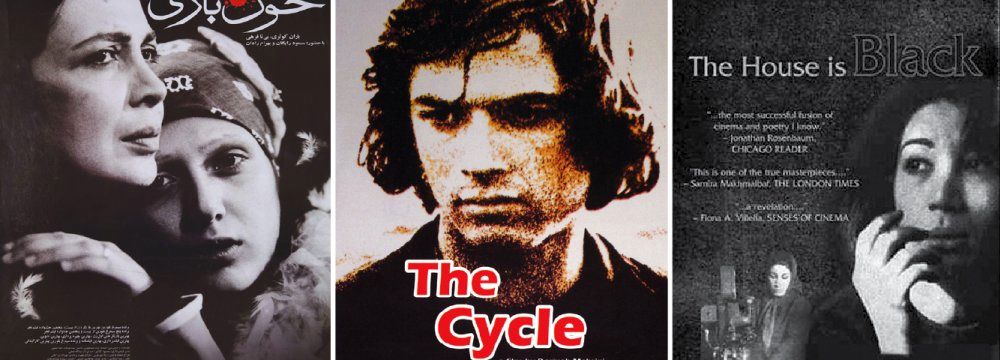Five Big Names at Health Film Festival

TEHRAN.(Iranart) – T he third edition of Health Film Festival aiming at promoting movies on topics related to healthcare and highlighting the role and significance of health opened in Tehran on Thursday at Charsou Cineplex.
As of its last year edition, Ministry of Health and Medical Education, the festival organizer, has arranged the opening day of the festival to coincide with Iran’s National Doctors’ Day, celebrating Avicenna’s birthday, since the Persian polymath is highly respected as the father of early modern medicine.
The five-day event includes sections for feature films, documentaries, short films and TV shows. This year the festival is also holding review sessions on five classical Iranian films.
Films selected for the review section, in order of screening, are “Mainline” by Rakhshan Bani-Etemad, “The House is Black” by late poet and filmmaker Forough Farrokhzad, “To Be or Not to Be” by Kianoush Ayari, “The Cycle” by Dariush Mehrjui and “Nishdaroo” by Manouchehr Anvar.
Mainline is the story of a mother struggling to make the difficult decision of taking her drug-addicted daughter to a rehab center.
The House is Black, widely regarded as one of the greatest Iranian documentaries of all time, depicts an isolated community of lepers living in a village in Tabriz, East Azarbaijan Province.
To Be or Not to Be is the story of Anika, a young woman suffering from a chronic cardiac condition that has harmed her health to the point that she walks and talks with immense trouble. She is in desperate need for a heart transplant, but with her name down below in a waiting list of 200 patients (all needing transplant), the chances of a new heart for her become increasingly unlikely.
Mehrjui’s drama The Cycle is about a young man whose struggle to afford money for his ailing father’s high medical costs leads him to a different path in life. He becomes a black-marketer and soon rises to the top.
The Cycle was Iran’s submission for Best Foreign Language Film at the 50th Academy Awards in 1978, the first year Iran participated in the world’s most important film event.
Nishdaroo is a documentary offering general insight into the activities of Razi Vaccine and Serum Research Institute based in Karaj, Alborz Province, 30km west of Tehran.
Avicenna (980-1037) is one of the accomplished physicians, astronomers, thinkers and writers of Iran. Of the 450 works he is known to have written, around 240 have survived, including 150 on philosophy and 40 on medicine.
His most famous works are “The Book of Healing”, a philosophical and scientific encyclopedia, and “The Canon of Medicine”, a medical encyclopedia.
Besides philosophy and medicine, Avicenna’s corpus includes writings on alchemy, geography, psychology, Islamic theology, logic, mathematics and physics.
source: Financial Tribune

